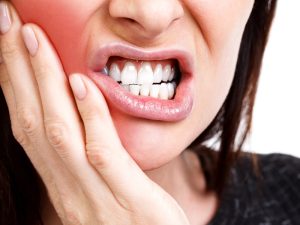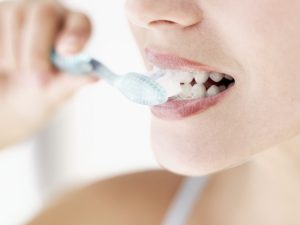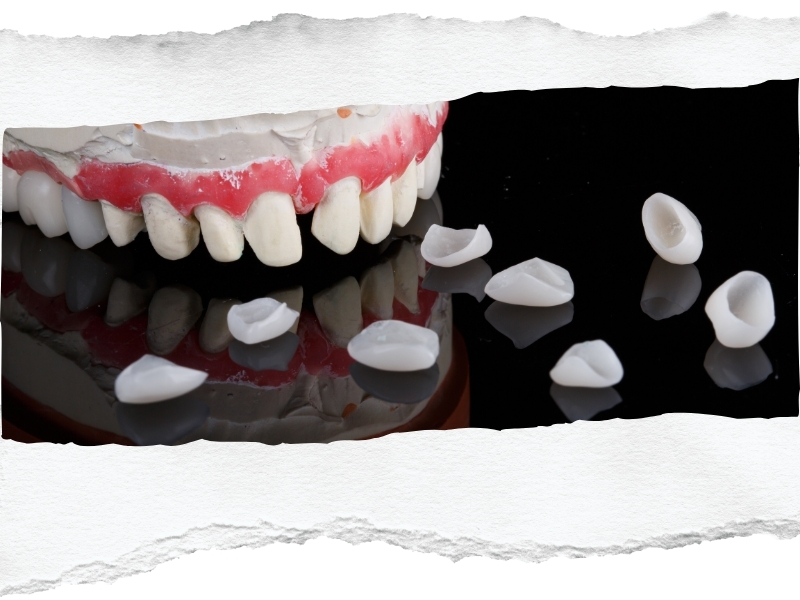Dental crowns are a reliable solution for restoring damaged or weakened teeth. Still, like any dental appliance, they can occasionally come loose. This situation can be unsettling and even painful. Knowing what to do next is crucial if your dental crown falls off. This article covers everything you need to know about dental crowns, why they might fall off, and what actions you should take.
What is a dental crown?
A dental crown is a cap placed over a damaged or decayed tooth to restore shape, size, and function. Dental crowns are designed to look and feel like natural teeth, blending seamlessly with the rest of your smile.
There are different types of crowns, including:
- Porcelain: Natural-looking and often used for front teeth.
- Metal or porcelain-fused-to-metal: Durable and commonly used for molars.
- Zirconia: A robust and metal-free option for those wanting a more aesthetic result.
Crowns are typically recommended when a tooth has suffered significant damage or decay that cannot be repaired with a simple filling. They’re also used after root canal treatment or to cap dental implants.
Why might a dental crown fall off?
Although dental crowns are designed to last many years, certain factors can cause them to become loose or fall off. Some common reasons include:
- Wear and tear: Over time, the cement holding the crown in place can weaken, mainly if you grind your teeth or chew on complex objects like ice or pens.
- Decay under the crown: Decaying underneath the crown can compromise the bond between the crown and the tooth, leading to loosening.
- Improper fit: If a crown wasn’t fitted correctly initially, it might not adhere as securely as it should, leading to it coming off.
- Injury: A blow to the mouth from an accident or fall can dislodge a dental crown.
What are the immediate risks of a loose or fallen crown?
When a dental crown falls off, it exposes the vulnerable tooth underneath, which can lead to several issues if not addressed promptly:
- Tooth sensitivity: The exposed tooth might be sensitive to temperature changes, especially when eating or drinking hot or cold foods.
- Pain: Without the protective crown, your tooth might experience discomfort or pain, significantly if it’s weakened or decayed.

- Infection risk: A crown protects a damaged or treated tooth from bacteria. Bacteria can enter the tooth when it falls off, increasing the risk of infection or further decay.
- Damage to the tooth: Without the crown in place, the tooth may be more susceptible to breakage or further wear, leading to more extensive treatment in the future.
What should you do if your dental crown falls off?
If your dental crown falls off, acting quickly to prevent further damage to your tooth is essential. Here’s what you can do:
- Save the crown: If possible, retrieve it and keep it safe. Clean it gently with warm water, but avoid harsh chemicals or scrubbing.
- Inspect your tooth: Check the exposed tooth. If it’s intact and not causing severe pain, you can usually wait a few days before seeing a dentist. If the tooth is broken or sharp, seek immediate attention.
- Temporary reattachment: Over-the-counter dental cement can temporarily hold the crown in place. This is a short-term solution until you can get professional care.
- Avoid using the affected tooth: To avoid further damage, refrain from chewing on the side where the crown has fallen off.
- Contact a dentist: As soon as possible, schedule an appointment with your dentist to have the crown reattached or replaced.
How can a dentist fix a fallen crown?
When you visit the dentist, they will assess the condition of your tooth and the fallen crown. Here’s what typically happens during the appointment:
- Examination: The dental crown procedure typically involves examining the tooth, cleaning it, and re-cementing or replacing the crown.
- Cleaning: Both the crown and the tooth will be cleaned to remove debris or decay.
- Re-cementing: If the crown is undamaged and the tooth is healthy, the dentist can re-cement it in place.
- Replacement: If the crown is damaged or no longer fits properly, a new one may need to be made. This process may involve taking new impressions of your tooth to create a custom crown.
How can you prevent a dental crown from falling off?
Preventing a dental crown from falling off involves taking good care of your oral health and avoiding habits that could damage the crown. Some tips include:
- Maintain good oral hygiene: Brush and floss regularly to prevent decay around the crown and gumline.

- Avoid hard foods: Chewing on complex objects like ice or candy can put undue pressure on your crown, causing it to loosen.
- Use a mouthguard: If you grind your teeth at night, wearing a mouthguard can protect your crown from excessive wear.
- Regular dental check-ups: Routine visits allow your dentist to monitor the condition of your crown and address any issues early on.
What is the cost of replacing a dental crown?
The price of replacing a dental crown can differ based on various factors, including the type of crown you select, the materials used, and the complexity of the procedure. Costs may also be influenced by whether additional treatments, like root canals or tooth extractions, are required. While dental insurance often covers part of the expense, consulting with your dentist about payment options and any available plans to help manage costs is a good idea. This way, you can find a solution that suits your needs and budget without compromising quality care.
Restore your smile with expert dental care!
Losing a dental crown can be a stressful experience, but our expert team is here to help you restore your smile and confidence. Suppose you’re dealing with a fallen crown or have concerns about your dental health. In that case, we offer a range of treatments, including crown replacement, tailored to your needs. Our friendly, multilingual staff and convenient location make it easy to access high-quality care when needed. Contact Marsfield Dental Care today, and let us help you get back to smiling with confidence!

